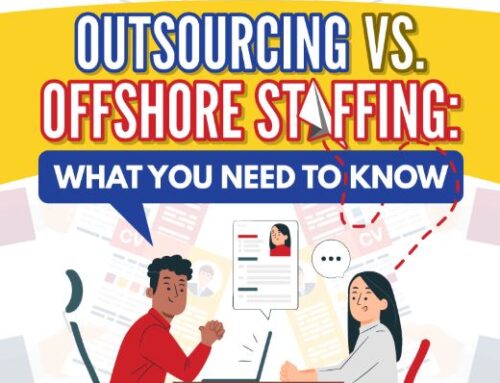California’s labor laws are often hailed as the gold standard for worker protection. However, while they ensure robust rights and benefits for employees, they also present significant challenges for employers. From the state’s often increased minimum wage to its stringent overtime requirements, California’s strict labor regulations can place significant financial and operational burdens on small and mid-sized companies.
To address these limitations, many employers are turning to offshore staffing as a strategic solution. Offshoring enables California businesses to maintain high operational standards without the heavy administrative burden and costs associated with the state’s labor regulations.
The Challenges of California’s Labor Law Landscape
Navigating California’s labor laws requires employers to comply with a multitude of rules that can be both intricate and demanding. These regulations are designed to protect workers but often impose administrative and financial pressures on businesses.
The following are some of the most pressing hurdles businesses encounter under California’s labor law framework.
1. High Minimum Wage and Rising Costs
California’s minimum wage is among the highest in the nation, starting at $16.50 per hour as of January 2024. Some cities within California even implement higher minimum wage rates: Los Angeles at $17.27 per hour and San Francisco at $18.67 per hour.
For companies with a large workforce or those operating on thin profit margins, these rising wage demands can lead to reduced margins and greater strain on budgets.
2. Complex Overtime Regulations
California is one of the few states to require both daily and weekly overtime calculations. Non-exempt employees must receive overtime pay (1.5 times their regular hourly rate) if they work over 8 hours in a day or 40 hours in a week. Additionally, employees are entitled to double pay for any hours worked beyond 12 in a day and for all hours over eight on the seventh consecutive day in a workweek.
This dual overtime burden can lead to higher operational costs, especially in industries with variable workloads.
3. The Risk of Labor Code Violation
The Private Attorneys General Act (PAGA) gives US employees the power to sue their employers for labor law violations on behalf of the state. This means that they can file lawsuits even for minor infractions.
In 2023, over 5,000 PAGA claims were filed in California, and settlements related to PAGA claims averaged $1.1 million per case. Businesses face a higher risk of spending more on legal costs due to the rise of PAGA lawsuits, and small to medium-sized businesses are often the hardest hit.
Why Offshoring Staffing Makes Sense for California Employers
For many small businesses in California, the complexity and cost of complying with state labor laws can be overwhelming. By delegating specific functions to skilled professionals in global talent hubs, businesses can save 40-70% in labor costs. This strategy not only helps companies remain financially stable but also provides the agility needed to focus on growth and innovation.
Among these global hubs, the Philippines has emerged as a premier destination for offshoring.
The offshore outsourcing industry in the Philippines is currently growing at an average rate of 7%. Key reasons for this robust growth include the country’s high English proficiency, with the Philippines ranking 2nd in Asia and 20th globally. Additionally, the cost advantage is significant. On average, salaries in the Philippines are 40-70% lower than in California, which provides significant savings without compromising on quality of work.
Given these advantages, offshoring to the Philippines is a strategic decision that empowers businesses to navigate challenges posed by California’s complex labor laws. By leveraging the Philippines’ highly skilled workforce at a fraction of the cost, businesses can bypass the rising costs associated with adhering to California’s labor regulations.
Moreover, cost savings are not the only benefit offshoring to the Philippines provides. Here’s how it also offers a competitive edge:
1. Simplifying Compliance
Although one might think that hiring offshore staff makes labor code compliance more complicated, offshoring to the Philippines can actually simplify the process for California-based employers.
Offshore Filipino workers are governed by the Philippine Labor Code. As such, US-based employers are not bound by the complex requirements of California’s labor laws, which apply primarily to employees working physically within the state.
While California regulations still apply to employees working within the state, offshore workers in the Philippines are bound by a more straightforward Philippine Labor Code. Hiring Filipino offshore staff reduces the administrative burden on companies, and the lower cost allows them to allocate resources more effectively.
Employing offshore staff through an offshoring company in the Philippines further streamlines the process. These agencies are well-versed in local employment laws and ensure that both the employer and employee comply with Philippine legal requirements. With an offshore agency handling the intricacies of Philippine labor compliance, California firms can effectively navigate both legal frameworks.
2. High-Quality Talent
The Philippines has a large, skilled offshore workforce in fields like accounting, finance, and customer service. In fact, the country has established itself as a leader in these fields, with expertise recognized not only in the US but also in other developed nations like Australia, the UK, and the US.
Filipino professionals offer a diverse mix of technical expertise and interpersonal skills that make them ideal workers for US employers. In the field of accounting, Filipino Certified Public Accountants (CPAs) and Certified Management Accountants (CMAs) are highly valued by international companies for their expertise and exceptional workplace adaptability.
Many Filipino offshore accountants also start their careers with global accounting giants, exposing them to US accounting practices, taxation, and legislation. This makes them a great fit for California firms seeking qualified talent at budget-friendly rates.
3. Strategic Workforce Distribution
By offshoring certain functions such as accounting, finance, or customer support, employers can focus domestic efforts on strategic roles requiring on-shore presence. This hybrid model optimizes resources while minimizing compliance risks associated with California’s labor laws.
Offshore Staffing in the Philippines: Growth Without Compromise
California’s labor laws are primarily designed to protect workers, but they can pose barriers to business expansion and operational flexibility. Offshore staffing provides an effective way to navigate these challenges so businesses can optimize costs and resources.
By embracing offshore solutions, California employers can shift the focus from compliance headaches to strategic growth. If labor law challenges are holding your business back, it might be time to explore offshore staffing.
Plan your Philippine offshore strategy today with the help of Elite Virtual Employment Solutions (EVES).
Partnering with EVES for your offshoring needs can be done in eight easy steps:
- Describing Staffing Needs
- Searching and Screening Applications
- Conducting Interviews
- Preparation of Offer Letter
- Distribution of Offers
- Pre-Employment Procedures
- Employee Onboarding
- Reporting to Client
With EVES handling the heavy administrative tasks, you can focus on scaling your business and ensuring that the right offshore talent is seamlessly integrated into your operations. Our expert handling of recruitment and onboarding processes ensures compliance with the Philippine Labor Code.
Get started today by contacting us at (747) 300-3234 or emailing us at info@evesolutions.net.










Leave A Comment
You must be logged in to post a comment.